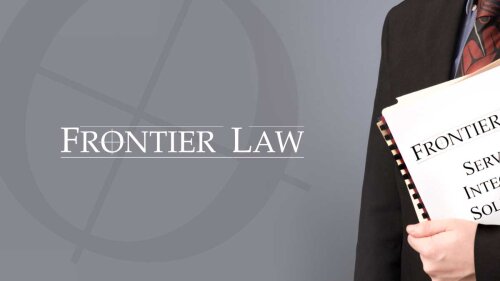Best Elder Law Lawyers in Canada
Share your needs with us, get contacted by law firms.
Free. Takes 2 min.
Or refine your search by selecting a city:
List of the best lawyers in Canada
About Elder Law in Canada
Elder Law in Canada encompasses a wide array of legal issues and services that cater to the aging population and their families. It includes matters such as estate planning, healthcare decisions, elder abuse, guardianship, and retirement benefits. This branch of law is dedicated to ensuring that the rights of the elderly are upheld, and their needs are adequately met, especially in an environment where they are increasingly vulnerable to exploitation and other legal challenges.
Why You May Need a Lawyer
There are numerous situations where individuals might require legal help in Elder Law. These can include creating wills and trusts, navigating the complexities of long-term care, addressing instances of elder abuse, or dealing with conflicts regarding guardianship or power of attorney decisions. Legal professionals skilled in Elder Law can provide invaluable assistance in advocating for the rights and wishes of older adults, ensuring they receive proper care, and that their financial and personal affairs are handled appropriately.
Local Laws Overview
Across Canada, each province and territory has specific laws and regulations relevant to Elder Law, though common threads include:
- Health Care Consent: Laws that require valid consent for treatment and authorize substitute decision-makers when necessary.
- Guardianship and Trusteeship: Systems to appoint individuals to manage personal and financial affairs when an elder is incapacitated.
- Wills and Estates: Regulations surrounding the creation and execution of wills, as well as the administration of estates and trusts.
- Protection Against Elder Abuse: Provincial statutes and initiatives designed to prevent, detect, and address elder abuse in its various forms.
- Retirement and Pension Regulations: Federal and provincial programs that govern pensions, benefits, and retirement savings plans.
Frequently Asked Questions
What is Elder Law?
Elder Law addresses legal issues affecting older individuals, including estate planning, health care, guardianship, and protection against abuse.
What issues can an Elder Law attorney help with?
Attorneys can assist with advance healthcare directives, power of attorney, wills, trusts, elder abuse cases, retirement benefits, and more.
How can I detect elder abuse?
Signs include unexplained injuries, sudden financial changes, withdrawal from activities, and changes in demeanor or hygiene. It requires attention and often legal intervention.
How do I choose an executor for my will?
Choose someone trustworthy, capable of managing your estate, and willing to take on the responsibility without conflict of interest.
What is a power of attorney?
A legal document allowing an individual to appoint someone to manage their financial or personal matters if they become unable to do so.
Are there legal standards for long-term care in Canada?
Yes, provinces and territories have regulations regarding the quality of care, rights, and protections of residents in long-term facilities.
Can a will be contested in Canada?
Yes, wills can be contested on grounds such as lack of testamentary capacity, undue influence, or improper execution.
What is a living will?
A living will documents an individual’s wishes regarding medical treatments in situations where they may be unable to communicate their decisions.
How does one establish guardianship in Canada?
A legal process that involves the court appointing a guardian to manage the personal and/or financial affairs of an individual who cannot do so independently.
Are seniors entitled to legal representation if they can't afford it?
Yes, some provinces offer legal aid services for seniors who cannot afford to pay for legal representation on their own.
Additional Resources
For more information and assistance, consider reaching out to the following institutions and organizations:
- Government Sources: Service Canada, Canadian Pension Plan (CPP) information, and provincial health ministries.
- Legal Aid Services: Provincial legal aid services for those eligible.
- Senior Advocacy Groups: Organizations like CARP (Canadian Association for Retired Persons) and regional advocacy groups.
- Community Services: Local community centers and support services for seniors.
Next Steps
If you require legal assistance in Elder Law, the following steps can guide you:
- Identify the specific legal issue or issues you are facing.
- Consider consulting with specialists or elder law attorneys, either independently or through referrals from trusted resources.
- Gather all relevant documentation and information related to your case.
- Assess your eligibility for legal aid services if financial constraints exist.
- Schedule a consultation with an elder law specialist to explore your legal options and plan your course of action.
Lawzana helps you find the best lawyers and law firms in Canada through a curated and pre-screened list of qualified legal professionals. Our platform offers rankings and detailed profiles of attorneys and law firms, allowing you to compare based on practice areas, including Elder Law, experience, and client feedback.
Each profile includes a description of the firm's areas of practice, client reviews, team members and partners, year of establishment, spoken languages, office locations, contact information, social media presence, and any published articles or resources. Most firms on our platform speak English and are experienced in both local and international legal matters.
Get a quote from top-rated law firms in Canada — quickly, securely, and without unnecessary hassle.
Disclaimer:
The information provided on this page is for general informational purposes only and does not constitute legal advice. While we strive to ensure the accuracy and relevance of the content, legal information may change over time, and interpretations of the law can vary. You should always consult with a qualified legal professional for advice specific to your situation.
We disclaim all liability for actions taken or not taken based on the content of this page. If you believe any information is incorrect or outdated, please contact us, and we will review and update it where appropriate.
Browse elder law law firms by city in Canada
Refine your search by selecting a city.















